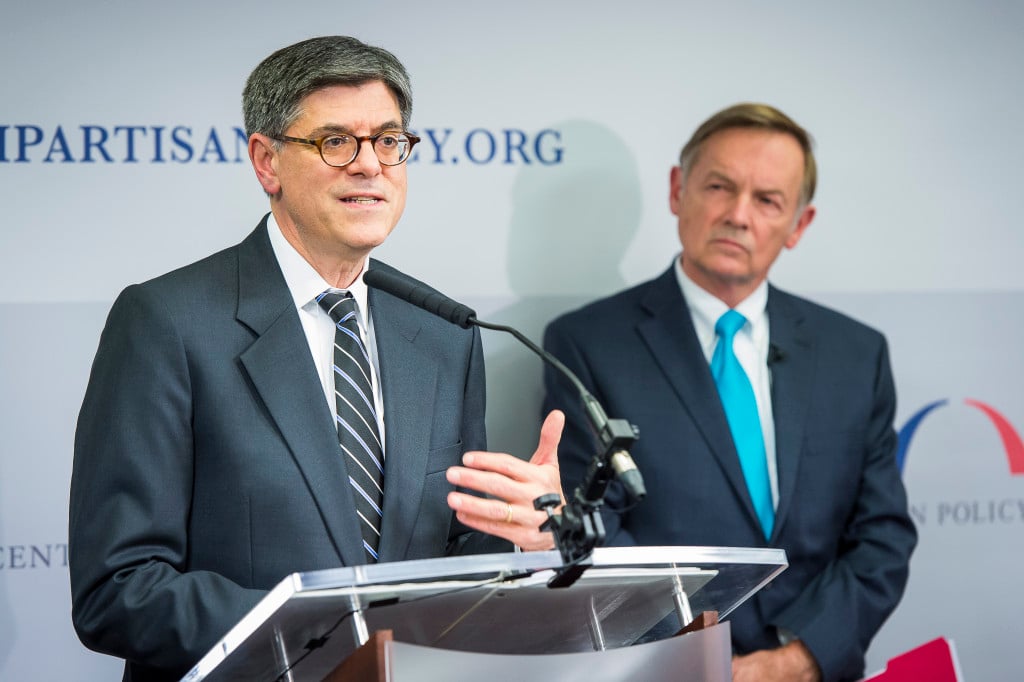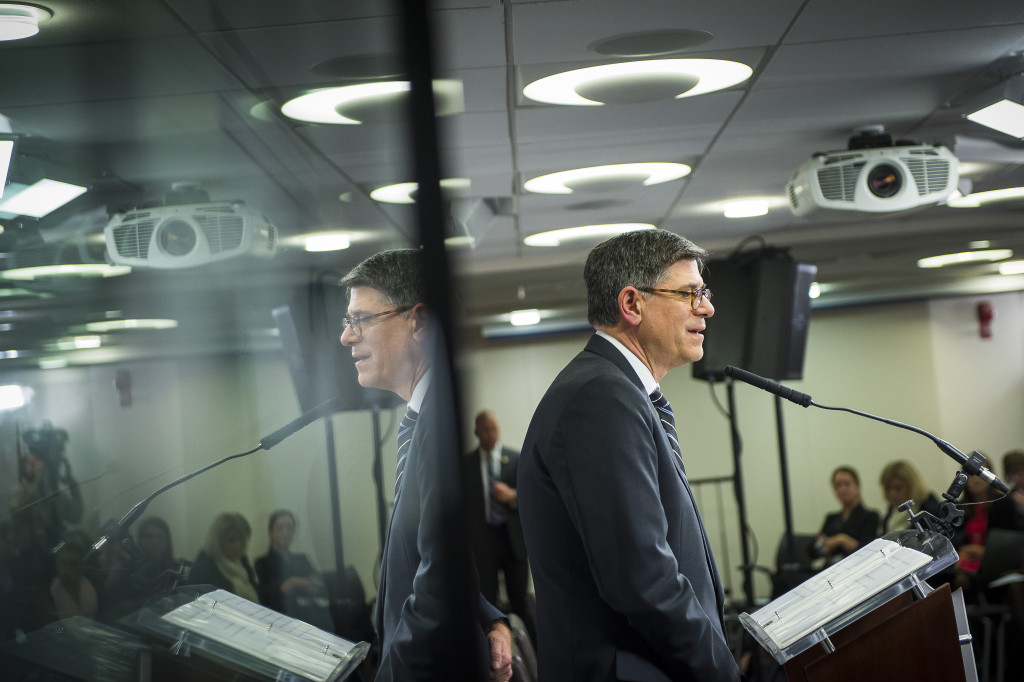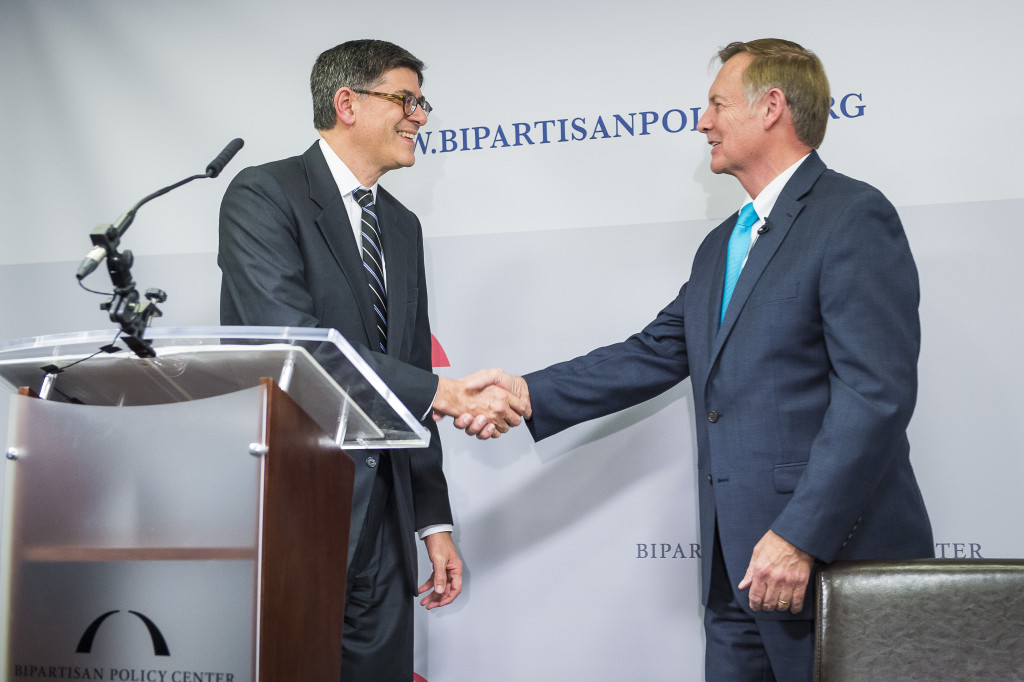Just days before the nation’s borrowing authority was set to expire, Treasury Secretary Jack Lew applauded the news of a budget agreement between the Obama administration and congressional leaders in a speech at BPC.
The deal includes a suspension of the debt limit until 2017. While the measure is a small package that addresses some urgent items, Secretary Lew shared his hope that the momentum would continue once Representative John Boehner (R-OH) passed the speaker’s gavel to Representative Paul Ryan (R-WI).
“This agreement would fund the government for two years and raise the debt limit so that our country can continue to meet our obligations,” Lew said. “This would be a significant accomplishment and is a step toward ending the pattern of short-term legislating that has unfortunately become the norm for our country.”
Discussing recent episodes of fiscal brinkmanship in Congress, Lew reiterated his desire to remove the debt limit from larger debates over fiscal policy. “The debt limit does not make sense as a way of controlling spending or policies,” he said. “Congress makes commitments; we then implement those commitments, and the debt limit just determines whether or not you are authorized to pay for them.”
During a panel discussion following Lew’s remarks, former Senator Don Nickles pointed out that the debt limit has traditionally been the only way to get Congress and the president to tackle urgent fiscal issues. Former Representative Vin Weber highlighted the continued need to address entitlement programs going forward. Both he and former Senator Kent Conrad discussed the broader goal of refocusing the spending debate from discretionary savings to mandatory programs.
Prior to Lew’s appearance, BPC’s economic policy team released an updated “X-date” range for when the federal government would be unable to make all payments in full and on time. The projection, which was set for November 10-16, 2015, has been a cornerstone of BPC’s economic policy work since 2011. The secretary acknowledged BPC’s efforts on the issue and praised the project’s leadership.
“For nearly a decade, the Bipartisan Policy Center has been an important forum for discussion across party lines on a variety of complex issues,” Lew said. “I want to thank the center for the important work they have been doing on the debt limit and particularly highlight the contributions by Bill Hoagland and Steve Bell.”
“Thanks to the Bipartisan Policy Center for the sustained focus on an issue that a lot of people come and pay attention to periodically. We very much appreciate that there are real experts here who are partners even when it’s not in the headlines,” he added.
Lew’s appearance underscored a growing trend: time and again, leaders from both parties rely on BPC as a trusted forum to share their views on the latest developments in Washington.






